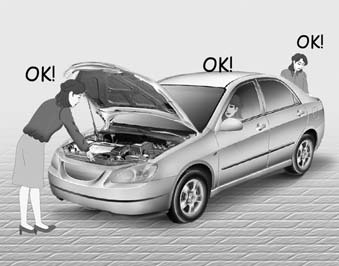Highway driving

Tires
Adjust the tire inflation pressures to specification. Low tire inflation pressures will result in overheating and possible failure of the tires.
Avoid using worn or damaged tires which may result in reduced traction or tire failure.
NOTICE
Never exceed the maximum tire inflation pressure shown on the tires.
WARNING
• Underinflated or overinflated tires can cause poor handling, loss of vehicle control, and sudden tire failure leading to accidents, injuries, and even death. Always check tires for proper inflation before driving. For proper tire pressures, refer to “Tires and wheels” in section 8.
• Driving on tires with no or insufficient tread is dangerous. Wornout tires can result in loss of vehicle control, collisions, injury, and even death. Worn-out tires should be replaced as soon as possible and should never be used for driving. Always check the tire tread before driving your car. For further information and tread limits, refer to “Tires and wheels” in section 7.
Fuel, engine coolant and engine oil
High speed travel consumes more fuel than urban motoring. Do not forget to check both engine coolant and engine oil.
Drive belt
A loose or damaged drive belt may result in overheating of the engine.
See also:
Exhaust Pipe and Muffler
Visually inspect the exhaust pipes, muffler and hangers for cracks, deterioration,
or damage. Start the engine and listen carefully for any exhaust gas leakage. Tighten
connections or replace part ...
Interior
Because the Accent has gone longer than most of its competition since its
last redesign, the interior is definitely behind the others I've already
mentioned, but it's about on par with Chevy's tin ...
Carry Emergency Equipment
Depending on the severity of the weather where you drive your car, you should
carry appropriate emergency equipment. Some of the items you may want to carry include
tire chains, tow straps or chai ...


